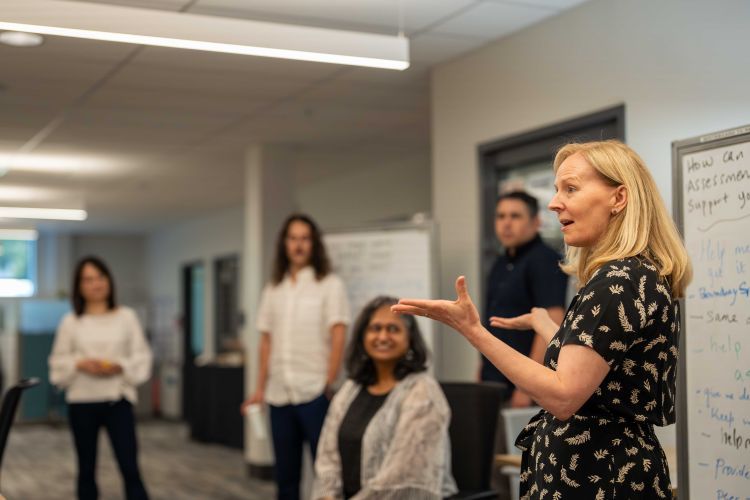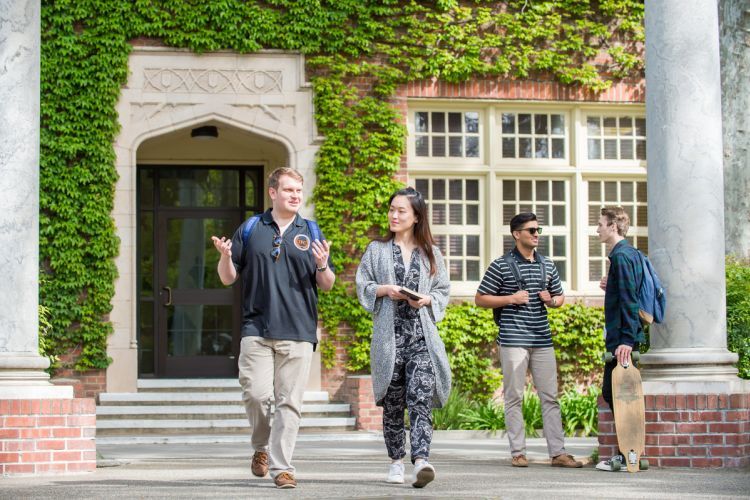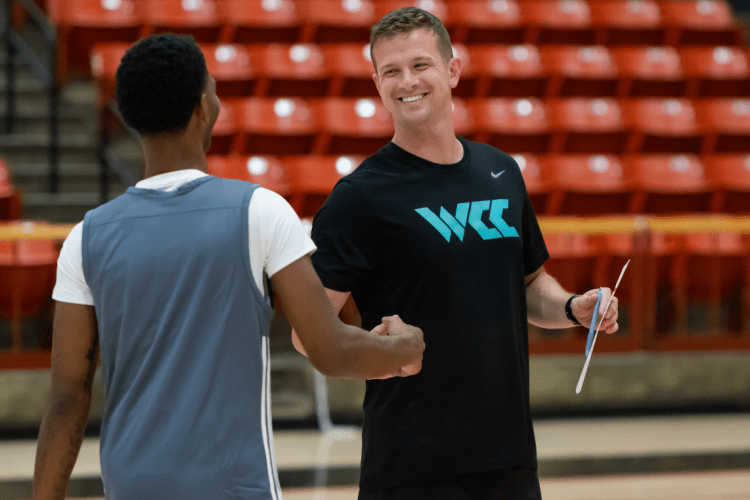Breadcrumb
Pacific makes major strides in sustainability
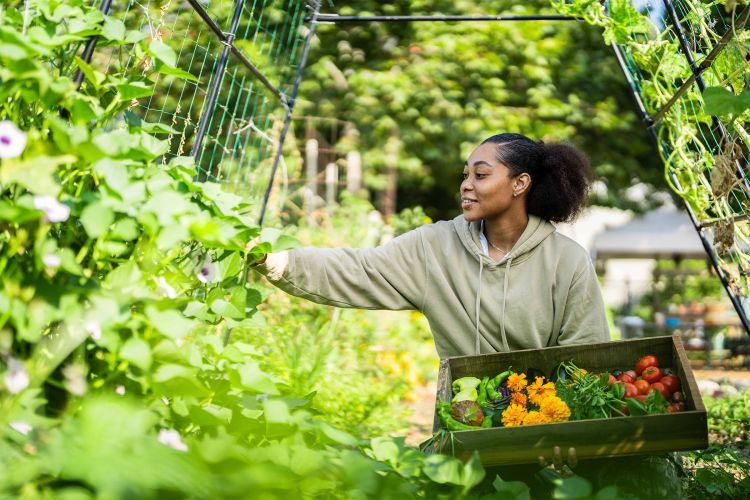
The Ted and Chris Robb Garden serves as a living laboratory for students and the community to learn about sustainable gardening.
University of the Pacific has made significant progress toward a gold rating in the national system that measures sustainability at colleges and universities around the world.
Pacific earned silver with a score of 58 on the Sustainability Tracking Assessment and Rating System—26% higher than its last assessment in 2021. The improved score was driven by several major initiatives:
- The installation of 12,000 solar panels on the Stockton Campus, which generate nearly one-third of the campus’s energy needs.
- Installing electric vehicle charging stations.
- Publishing the university’s first sustainability action plan.
- Using 100% non-potable water for irrigation.
- Becoming a Hispanic-Serving Institution.
- Providing nearly 290,000 hours of service to surrounding communities in the 2022-23 academic year.
The full report is available on the STARS website. The university has set a goal to achieve gold by 2026.
Sustainability is one of the core focus areas President Christopher Callahan established in 2020 with a goal of becoming one of the most sustainable campuses in the country.
“We are committed to advancing sustainability in what we teach, how we operate and how we interact with each other,” Callahan said. “We’re looking forward to continued progress on initiatives currently underway, such as a proposal to develop a sustainability major and expanding renewable energy production.”
An energy audit is currently taking place across Pacific’s three campuses in Stockton, Sacramento and San Francisco. Once complete in the fall, Pacific will use the data for long-term strategic planning to identify energy reduction opportunities with the most impact.
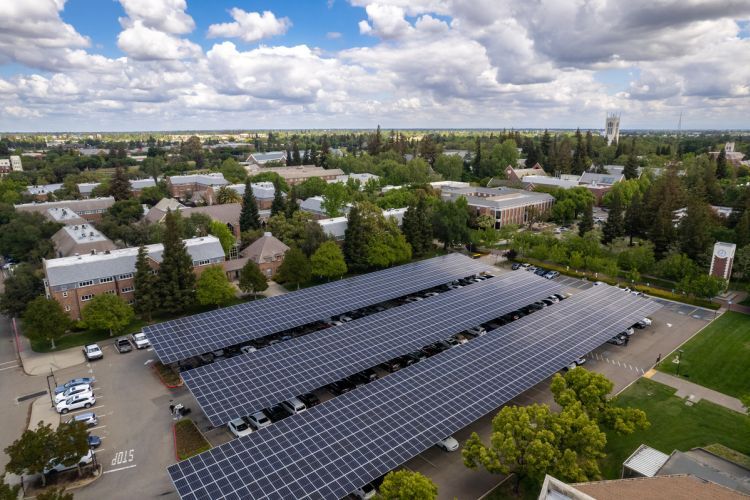
Solar canopies cover eight parking lots on the Stockton Campus, providing about 30% of the campus's energy needs.
Enhanced transportation options now provide students more opportunities to get around without a car. Electric bikes are available for rent and the Pacific Shuttle takes students to popular shopping destinations. For longer trips, electric Zipcars can be rented.
The university also received high marks in the STARS report for using the campus as a living laboratory. Student projects have included analyzing data from the campus solar panels, creating a system to reduce food waste in the dining hall and designing plans to improve rainwater management.
“We want to not only serve as good models to our students, but also equip them with essential knowledge and hands-on experiences so that they can be stewards for change in their communities and workplaces after they graduate,” said Sustainability Director Jessica Bilecki.
Classes also regularly tour the Ted and Chris Robb Garden on campus.
“The mission of the garden is to provide a space for the students to not only see how their food is grown but learn how to grow the food,” said Janice Setser, coordinator for the garden.
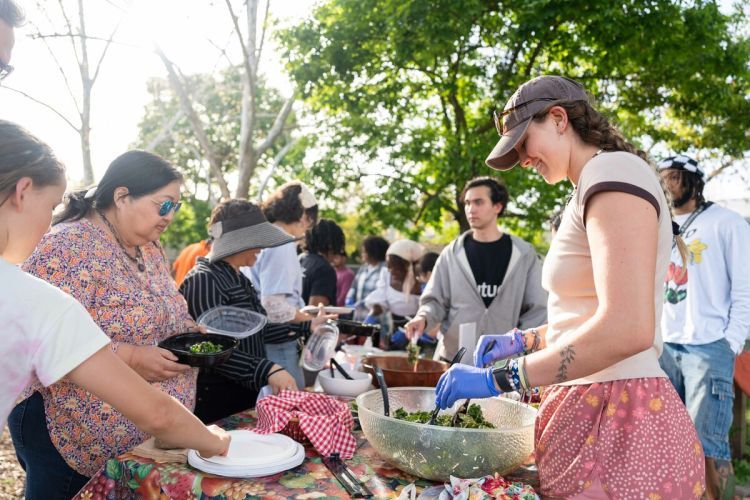
Students serve food made with produce from the Ted and Chris Robb Garden during Gardensgiving.
At the biannual Gardensgiving event, students work with Setser to prepare dishes from the garden’s produce which are served to the campus community. “When students walk into the garden and see chard or mustard, they don't know what to do with that, so we make creations with them, and they're really good,” Setser said.
The garden produced more than 1,400 pounds of produce during the 2023-24 academic year. The produce is distributed weekly and made available in Pacific’s food pantry, which saw a 20% increase from 2022 with nearly 1,500 visits.
Learn more about Pacific’s commitment to creating a sustainable campus culture for current and future generations, and take the university’s self-guided sustainability walking tour.


